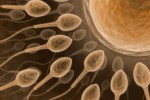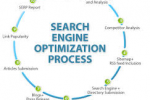When someone goes to see a doctor, it is typically because an individual is experiencing some kind of negative symptoms, wants to know why they are occurring, and what to do about them. Or if a person goes in for a regular check-up, the goal is to avoid or prevent the aforementioned symptoms and maladies. Ultimately, we gauge our level of physical well-being by how many signs or symptoms we are, or are not, experiencing.
However, it can be difficult to know which of the many things our bodies tell us are worth seeing a doctor for. This is particularly relevant for women; the variety of physiological phenomena exclusive to women, including but not limited to menstruation, pregnancy, menopause, etc., can be confusing and tough to deal with. If you or someone you know are experiencing any of the following symptoms, or just ‘feel off’ in some way, schedule an appointment with a doctor or clinic as soon as possible.

Delayed or Irregular Menstruation
Estrogen is a primary regulator of sexual development, and abnormal periods are the most common indicator of not enough female hormones running through a woman’s system. Whether a problem arose during the stages of female puberty, or the struggle is newfound, restoring one’s estrogen levels is often the most effective remedy.
Mood Swings
Although women are inherently more emotional than their male counterparts, over-emotionality should not be passed off as simply ‘part of womanhood’. Unprovoked irritability or annoyance, acute depression, and crying for no reason are often mood swings that indicate a lack of hormonal interaction. These and other symptoms are often described as “coming from nowhere”, where the woman cannot pinpoint what caused the emotional shift.
Low Sexual Desire and/or Painful Intercourse
More than anything else, Estrogen is a sex hormone. Its primary functions and components are focused on the proper development and upkeep of a woman’s sexuality and reproduction. Lowered libido, pain during intercourse, or other physical symptoms regarding sex are difficult to cope with, but often directly related to the amount of Estrogen being produced by a woman’s ovaries and adrenal glands.
Headaches, Fatigue, Hot Flashes, etc.
The least specific of the list of symptoms, these indicators are important to keep in mind. The wide array of functions that occur simultaneously in a woman’s body are undeniably connected; if these or other similar symptoms are consistently rising to the surface, take the time to inspect as to why they are occurring. They may be your body trying to tell you that an essential component to a woman’s health, such as Estrogen, is currently lacking.
Infertility/Inability to become Pregnant
Although all women eventually become infertile towards their 50s and 60s due to natural Menopause, low levels of estrogen can cause younger women, even in their 20s and 30s, to struggle becoming pregnant. Paired with the presence of painful intercourse and low libido, early instances of infertility is often a tell-tale sign of insufficient estrogen, and regardless of the reason or origin, should most definitely elicit an appointment with a doctor as soon as possible.
Written by Clif, a freelance writer for TransformYou Arizona. We are pleased to provide a variety of services relating to weight loss, wellness, and general well-being of our clients. Thank you for reading!























